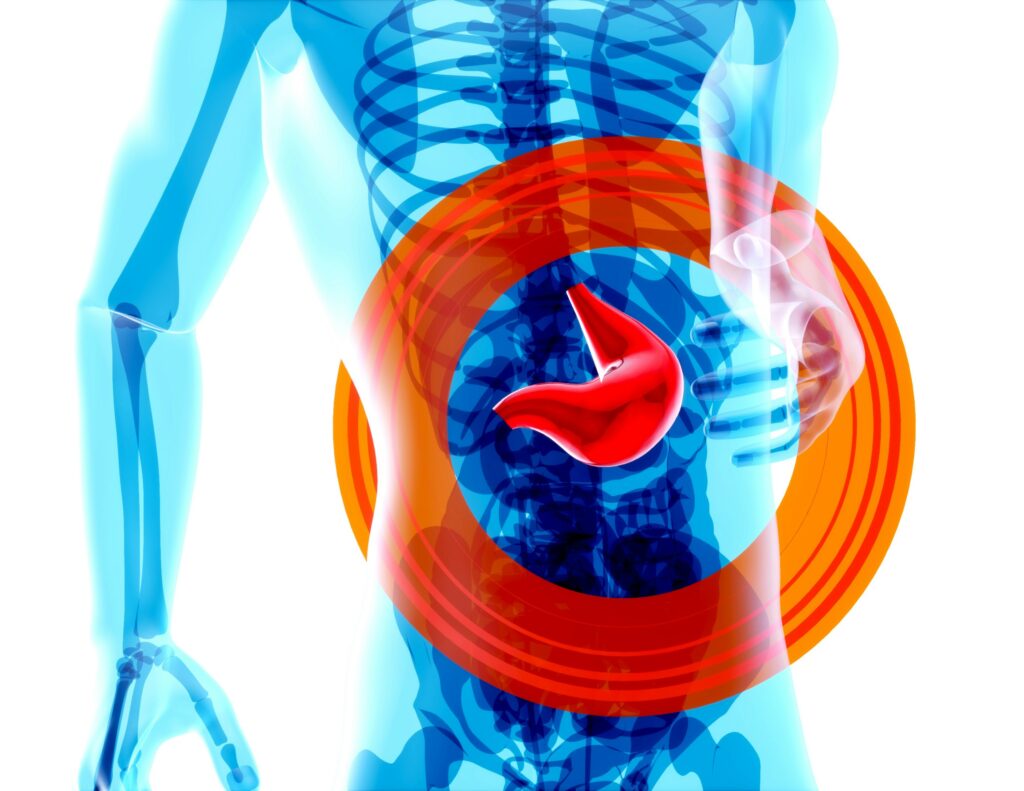A new UK-wide clinical study aimed at transforming liver cancer surveillance in people with cirrhosis has opened to recruitment.

The AMULET study, led by the University of Oxford, is comparing a new MRI technique to standard ultrasound surveillance, with a view to improving early detection of liver cancer and patient outcomes.
Liver cancer incidence is increasing and, according to Cancer Research UK, by 2038-2040 there could be around 9,700 new diagnoses of liver cancer every year. Most cases of liver cancer arise in people with liver cirrhosis.
People with cirrhosis undergo regular surveillance by ultrasound with the aim of detecting liver cancer earlier. The earlier liver cancer is detected, the more likely treatment will be successful. However, liver ultrasound has poor sensitivity in some patients, meaning that early liver cancers can be missed.
MRI is not routinely used for liver cancer surveillance. A normal clinical liver MRI scan uses an injected dye (contrast), but this technique may not be ideal for surveillance because it is more invasive for patients, adds time and cost, and the dye can accumulate in the brain with repeated doses.
The study team is developing a shorter non-contrast-enhanced MRI protocol, as an alternative to ultrasound and contrast-enhanced MRI, with the aim of using it for more sensitive surveillance.
Funded by a £2.2 million grant from the National Institute for Health and Care Research (NIHR) through its Efficacy and Mechanism Evaluation (EME) Programme, this multi-centre study brings together a wide range of academic and clinical expertise, including researchers from the Universities of Oxford, Nottingham, Bournemouth and Glasgow Caledonian.
The study is led by Professor Michael Pavlides of the University of Oxford, a researcher in the NIHR Oxford Biomedical Research Centre’s Imaging and Cancer Themes, and includes a wide range of specialists – including hepatologists, MRI physicists, radiographers, radiologists, sonographers and clinical research teams.
The AMULET study aims to recruit 300 peoplewith cirrhosis from more than 30 NHS sites across the UK. Recruitment has already begun at the four sites – Oxford, Bedford, Devon and Bournemouth – and so far, 14 participantshave been recruited. Another 37 NHS sites are planning to take part in the study.
The study team is expanding recruitment efforts into areas such as Northern England and Scotland, where liver disease and liver cancer rates are higher, ensuring that this research is delivered where it is most relevant and needed.
Professor Pavlides said: “We are excited that recruitment to the AMULET study has got under way in a number of centres. This study represents a potentially exciting step forward in liver cancer research and brings hope for improved detection, care and survival in people at higher risk of developing liver cancer.”